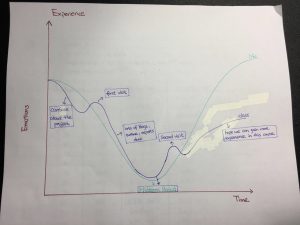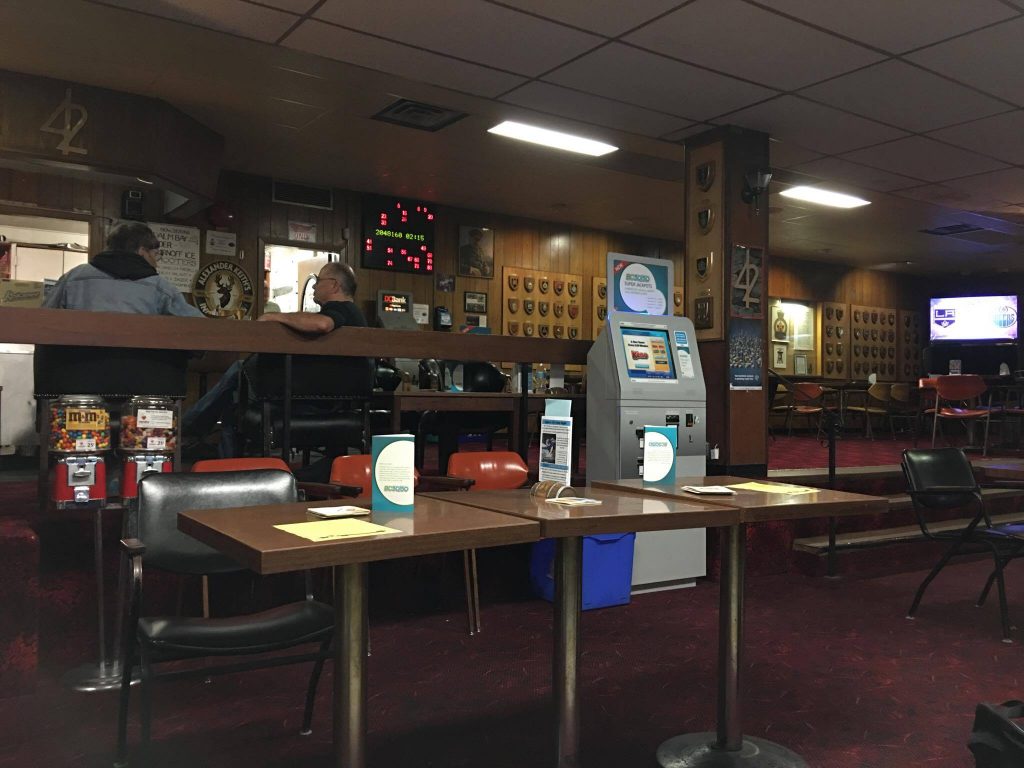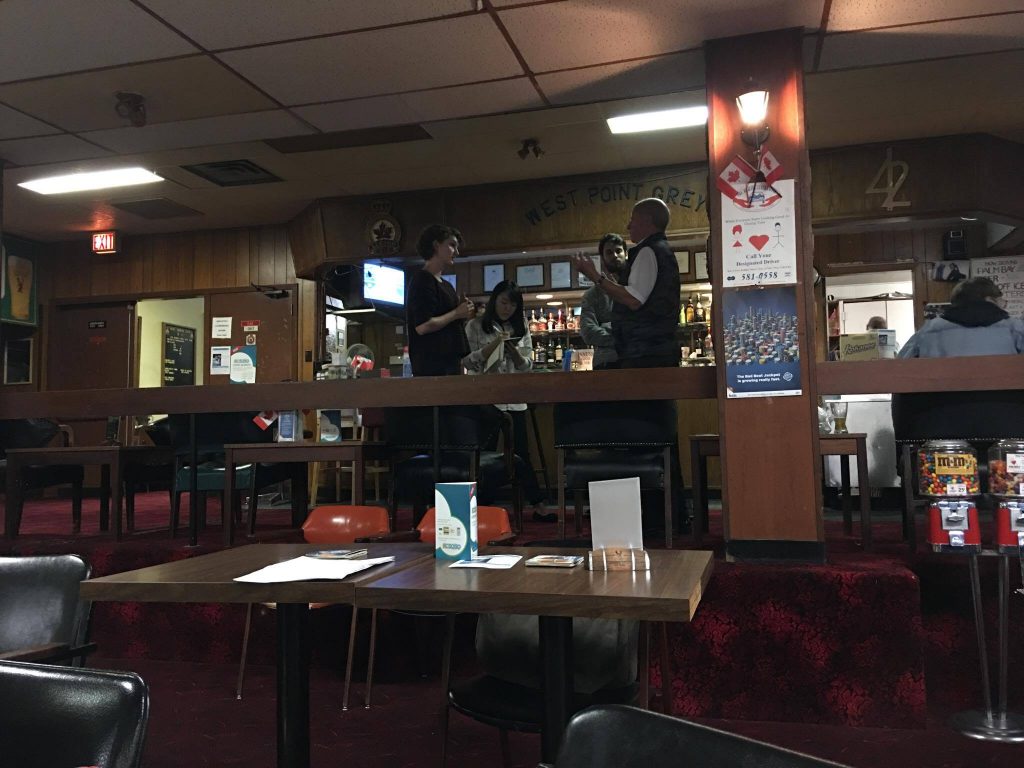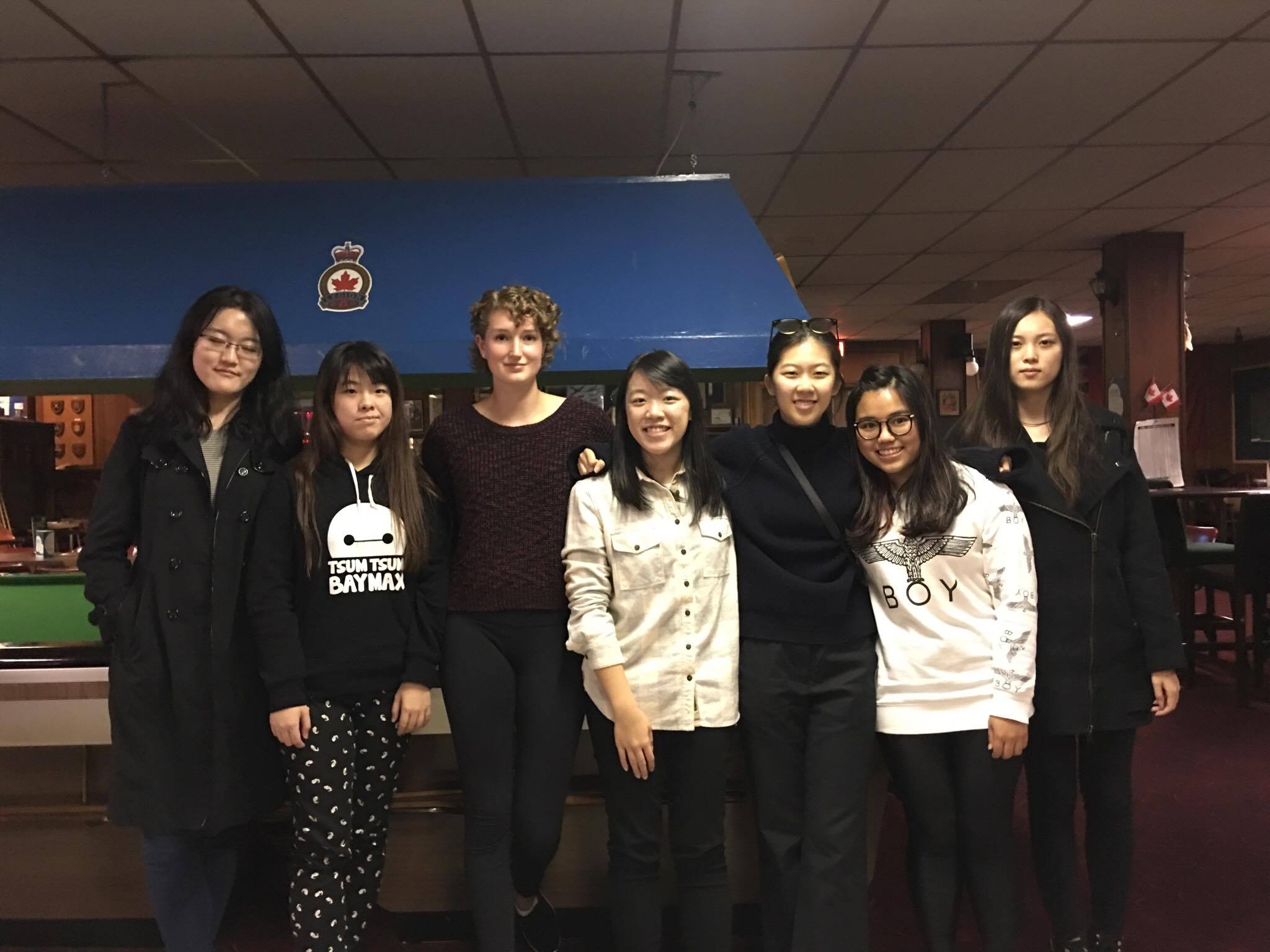With the project approaching to the end, this is our last blog posting. In the following blog, we will conclude our reflection of West Point Grey Legion exploration journey during this term and moments of significance. Although, we encountered several problems in the process, we spent a fun period of time on this project and we hope you enjoy reading our final blog as much as we did working with the community!
Moment of Significance
After the first visit to the legion, we conducted a second visit to West Point Grey legion with questions that we have that needs further clarification. The second visit to the legion could be said as a major turning point in our finding because we learned that the legion is having a renovation in near future. The legion expressed its eagerness in implementation of a kitchen infrastructure to improve their current food system. However, week after the visit to the legion, we heard back through email how the renovation proposal are not making any progress specifically regarding the implementation of kitchen infrastructure.
What?
Through the past almost 10 weeks that we’ve been working on the project, our group has experienced different big and small difficulties. The most crucial problem that we encountered in this project is the fact that we couldn’t form a constructive comment or suggestion for the legion regarding their food system. With the current food system that the legion has, our position is to provide what we thought would be the best solution. As the communicator to connect the legion’s goal and Vancouver Food Strategies’ goal, we formulated suggestions such as linking the legion to neighboring restaurants. However, after the visits and hearing the renovation plan of wanting to have a kitchen from the legion’s vice president, we were again lost on which direction of suggestion to provide. We would say that the visits to the legion updated us on what’s happening within the system of legion, but it doesn’t provide us future insight on the food system of the legion yet.
So What?
Despite the hard time of accomplishing the goal, which is forming a constructive suggestion for the legion’s current food system, we accomplished many other tasks along our way of working together. For example, we completed the interview as a team and shared what we learned to each other. We contributed ideas when preparing our final infographics and had fun with our creativities when building it. We also handled the pressure and thought of a plan B together when receiving news of how the legion’s kitchen building proposal is not making a progress. Just as Lee S. Shulman has stated, “In professional education, it is insufficient to learn for the sake of knowledge and under- standing alone; one learns in order to engage in practice.” We would never accomplish these tasks by understanding, rather, we learned through practicing. Through practicing, we learned to cooperate with team members better, we learned to respond or react better when facing unexpected circumstances, we also learned to respect and appreciate everyone that is involved in the project. Therefore, the final result is not the most important matter. What matters the most is what we have learned along the way.
Now What?
An interview was conducted with the vice president, Ron, this week to gather more detailed information regarding the renovation of the legion. Our role in this interview was to extract any useful information that may help us to determine which direction can our future research continue on. Moreover, research regarding the current situation of the legion is required to make and support any constructive suggestion.
Reference:
Shulman, L. S. (2005). Pedagogies of uncertainty. Liberal Education, 91(2), 18–25. Retrieved from http://files.eric.ed.gov/fulltext/EJ697350.pdf



